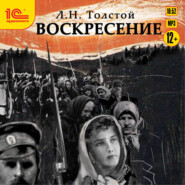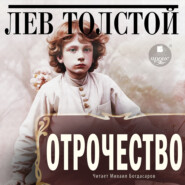По всем вопросам обращайтесь на: info@litportal.ru
(©) 2003-2024.
✖
Tolstoy on Shakespeare: A Critical Essay on Shakespeare
Настройки чтения
Размер шрифта
Высота строк
Поля
"First Citizen. This Cæsar was a tyrant.
Second Citizen. Nay, that's certain.
We are blessed that Rome is rid of him…
First Citizen. (After hearing a description of the murder.)
O piteous spectacle!
2 Cit. O noble Cæsar!
3 Cit. O woful day!
4 Cit. O traitors, villains!
1 Cit. O most bloody sight!
2 Cit. We will be revenged; revenge! about – seek – burn,
fire – kill – slay – let not a traitor live!" (Act 3, Sc. 2.)
The Tribune Marullus reproaches them with having forgotten Pompey, and calls them
"You blocks, you stones, you worse than senseless things."
He persuades them not to favor Cæsar, and when they leave him he asks his fellow tribune, Flavius,
"See, whe'r their basest metal be not moved?"
(Act 1, Sc. 1.)
Flavius also treats them with scant courtesy:
"Hence, home, you idle creatures, get you home.
Is this a holiday? What! you know not,
Being mechanical, you ought not walk
Upon a laboring day without the sign
Of your profession?"
(Ib.)
The populace of England is as changeable as that of Rome, if Shakespeare is to be believed. The Archbishop of York, who had espoused the cause of Richard II. against Henry IV., thus soliloquizes:
"The commonwealth is sick of their own choice;
Their over greedy love hath surfeited;
An habitation giddy and unsure
Hath he that buildeth on the vulgar heart.
O thou fond many! With what loud applause
Didst thou beat Heaven with blessing Bolingbroke,
Before he was what thou would'st have him be!
And now being trimmed in thine own desires,
Thou, beastly feeder, art so full of him,
That thou provokest thyself to cast him up.
So, so, thou common dog, didst thou disgorge
Thy glutton bosom of the royal Richard,
And now thou wouldst eat thy dead vomit up,
And howlst to find it."
(Henry IV., Part 2, Act 1, Sc. 3.)
Gloucester in "Henry VI." (Part 2, Act 2, Sc. 4) notes the fickleness of the masses. He says, addressing his absent wife:
"Sweet Nell, ill can thy noble mind abrook
The abject people, gazing on thy face
With envious looks, laughing at thy shame,
That erst did follow thy proud chariot wheels
When thou didst ride in triumph through the streets."
When she arrives upon the scene in disgrace, she says to him:
"Look how they gaze;
See how the giddy multitude do point
And nod their heads and throw their eyes on thee.
Ah, Gloster, hide thee from their hateful looks."
And she calls the crowd a "rabble" (Ib.), a term also used in "Hamlet" (Act 4, Sc. 5). Again, in part III. of "Henry VI.," Clifford, dying on the battlefield while fighting for King Henry, cries:
"The common people swarm like summer flies,
And whither fly the gnats but to the sun?
And who shines now but Henry's enemies?"
(Act 2, Sc. 6.)
And Henry himself, conversing with the keepers who have imprisoned him in the name of Edward IV., says:
"Ah, simple men! you know not what you swear.
Look, as I blow this feather from my face,
And as the air blows it to me again,
Obeying with my wind when I do blow,
And yielding to another when it blows,
Commanded always by the greater gust,
Such is the lightness of you common men."
(Ib., Act 3, Sc. 1.)
Suffolk, in the First Part of the same trilogy (Act 5, Sc. 5), talks of "worthless peasants," meaning, perhaps, "property-less peasants," and when Salisbury comes to present the demands of the people, he calls him
"the Lord Ambassador
Sent from a sort of tinkers to the king,"
(Part 2, Act 3, Sc. 2.)
and says:
"'Tis like the Commons, rude unpolished hinds
Could send such message to their sovereign."
Cardinal Beaufort mentions the "uncivil kernes of Ireland" (Ib., Part 2, Act 3, Sc. 1), and in the same play the crowd makes itself ridiculous by shouting, "A miracle," when the fraudulent beggar Simpcox, who had pretended to be lame and blind, jumps over a stool to escape a whipping (Act 2, Sc. 1). Queen Margaret receives petitioners with the words "Away, base cullions" (Ib., Act 1, Sc. 3), and among other flattering remarks applied here and there to the lower classes we may cite the epithets "ye rascals, ye rude slaves," addressed to a crowd by a porter in Henry VIII., and that of "lazy knaves" given by the Lord Chamberlain to the porters for having let in a "trim rabble" (Act 5, Sc. 3). Hubert, in King John, presents us with an unvarnished picture of the common people receiving the news of Prince Arthur's death:
"I saw a smith stand with his hammer, thus,
The whilst his iron did on his anvil cool,
With open mouth swallowing a tailor's news;

















